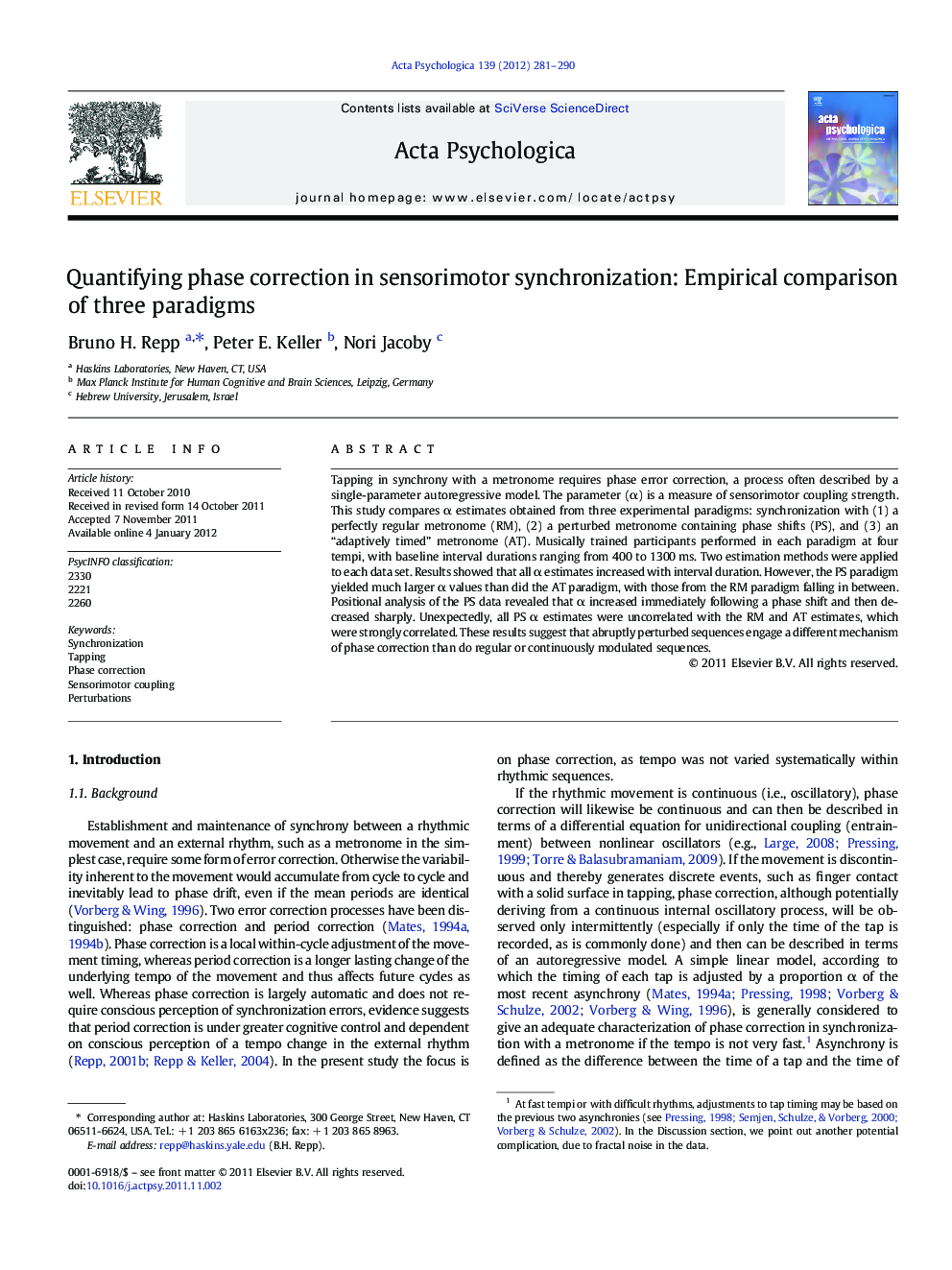| Article ID | Journal | Published Year | Pages | File Type |
|---|---|---|---|---|
| 919992 | Acta Psychologica | 2012 | 10 Pages |
Tapping in synchrony with a metronome requires phase error correction, a process often described by a single-parameter autoregressive model. The parameter (α) is a measure of sensorimotor coupling strength. This study compares α estimates obtained from three experimental paradigms: synchronization with (1) a perfectly regular metronome (RM), (2) a perturbed metronome containing phase shifts (PS), and (3) an “adaptively timed” metronome (AT). Musically trained participants performed in each paradigm at four tempi, with baseline interval durations ranging from 400 to 1300 ms. Two estimation methods were applied to each data set. Results showed that all α estimates increased with interval duration. However, the PS paradigm yielded much larger α values than did the AT paradigm, with those from the RM paradigm falling in between. Positional analysis of the PS data revealed that α increased immediately following a phase shift and then decreased sharply. Unexpectedly, all PS α estimates were uncorrelated with the RM and AT estimates, which were strongly correlated. These results suggest that abruptly perturbed sequences engage a different mechanism of phase correction than do regular or continuously modulated sequences.
